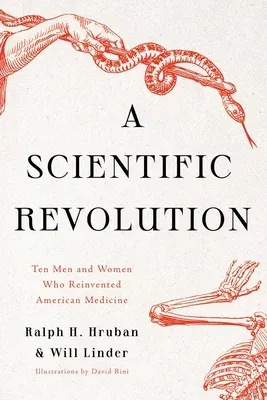A prismatic examination of the evolution of medicine, from a trade to
a science, through the exemplary lives of ten men and women.
Johns Hopkins University, one of the preeminent medical schools in the
nation today, has played a unique role in the history of medicine. When
it first opened its doors in 1893, medicine was a rough-and-ready trade.
It would soon evolve into a rigorous science. It was nothing short of a
revolution.
This transition might seem inevitable from our vantage point today. In
recent years, medical science has mapped the human genome, deployed
robotic tools to perform delicate surgeries, and developed effective
vaccines against a host of deadly pathogens. But this transformation
could not have happened without the game-changing vision, talent, and
dedication of a small cadre of individuals who were willing to commit
body and soul to the advancement of medical science, education, and
treatment.
A Scientific Revolution recounts the stories of John Shaw Billings,
Max Brödel, Mary Elizabeth Garrett, William Halsted, Jesse Lazear,
Dorothy Reed Mendenhall, William Osler, Helen Taussig, Vivien Thomas,
and William Welch. This chorus of lives tells a compelling tale not just
of their individual struggles, but how personal and societal issues went
hand-in-hand with the advancement of medicine.

